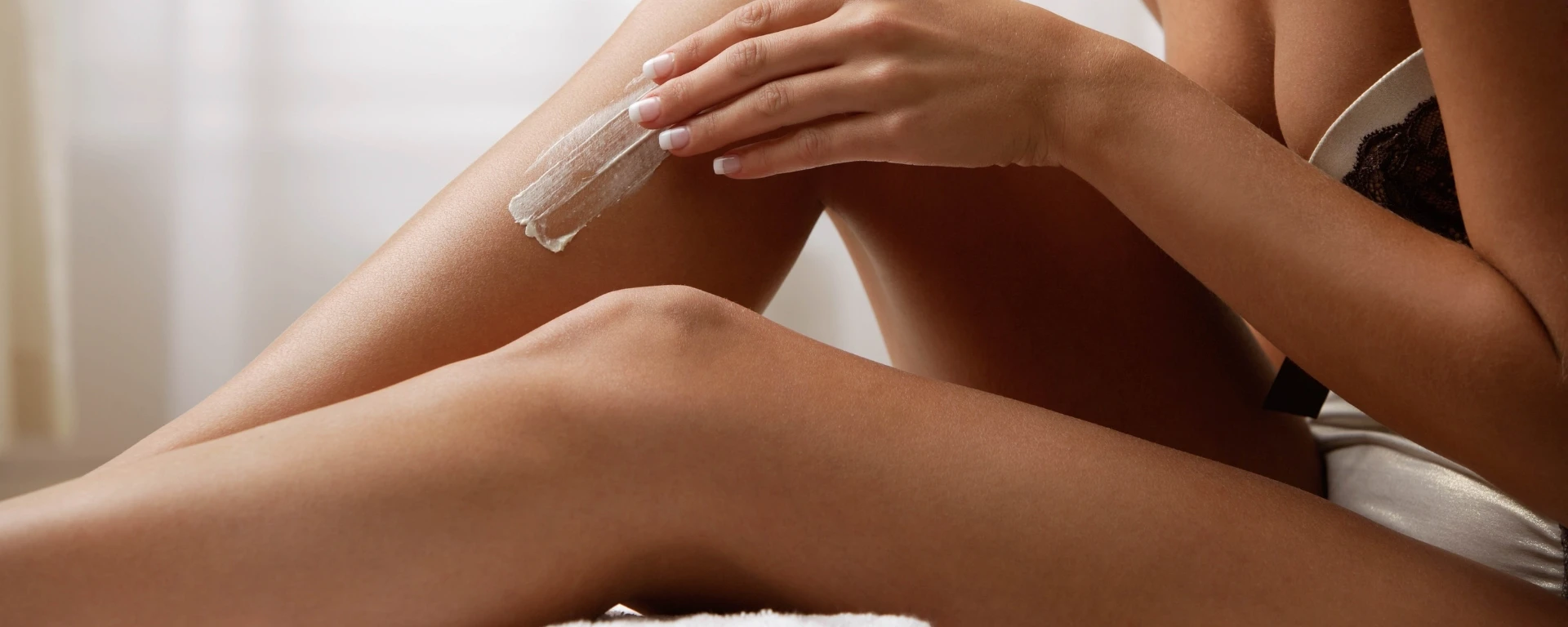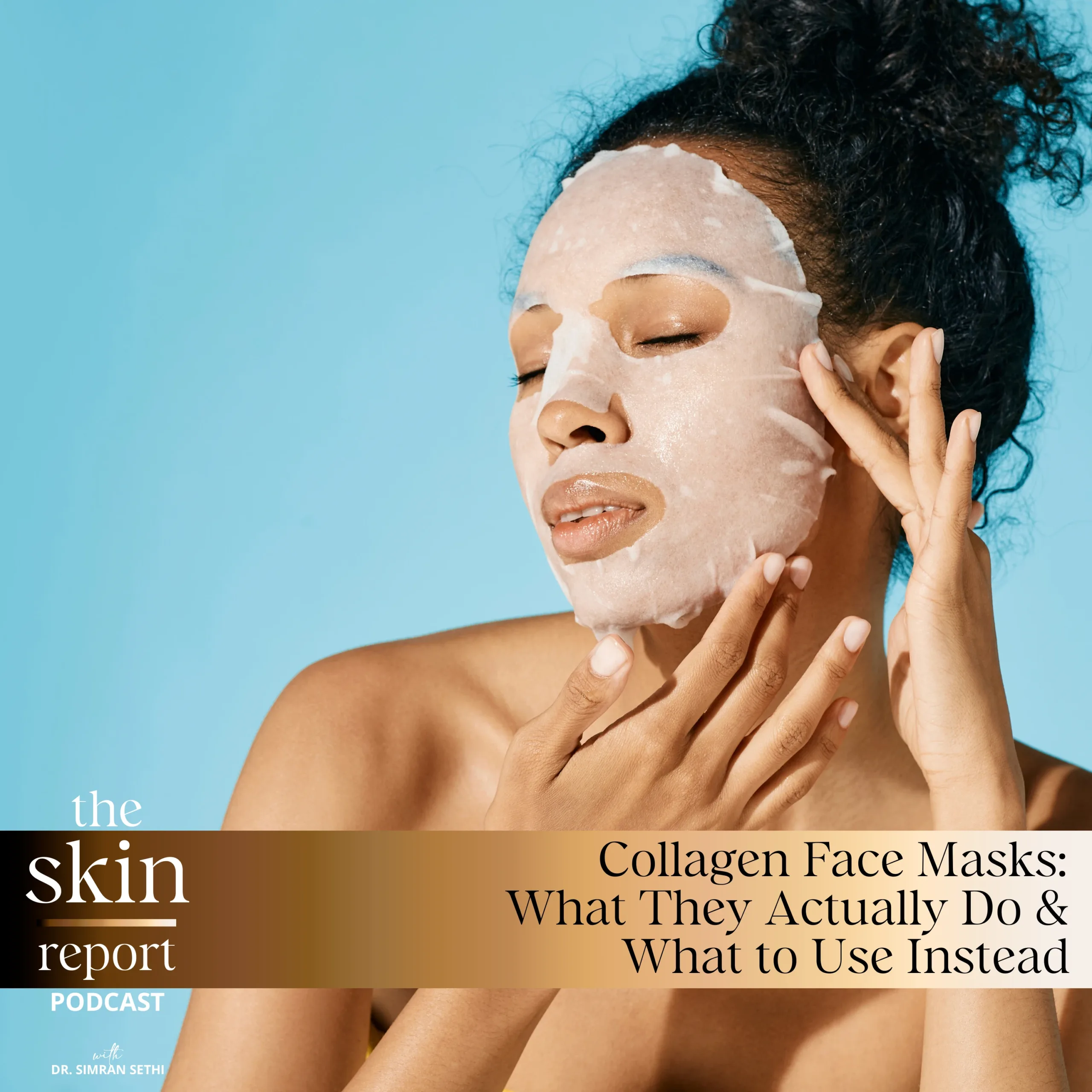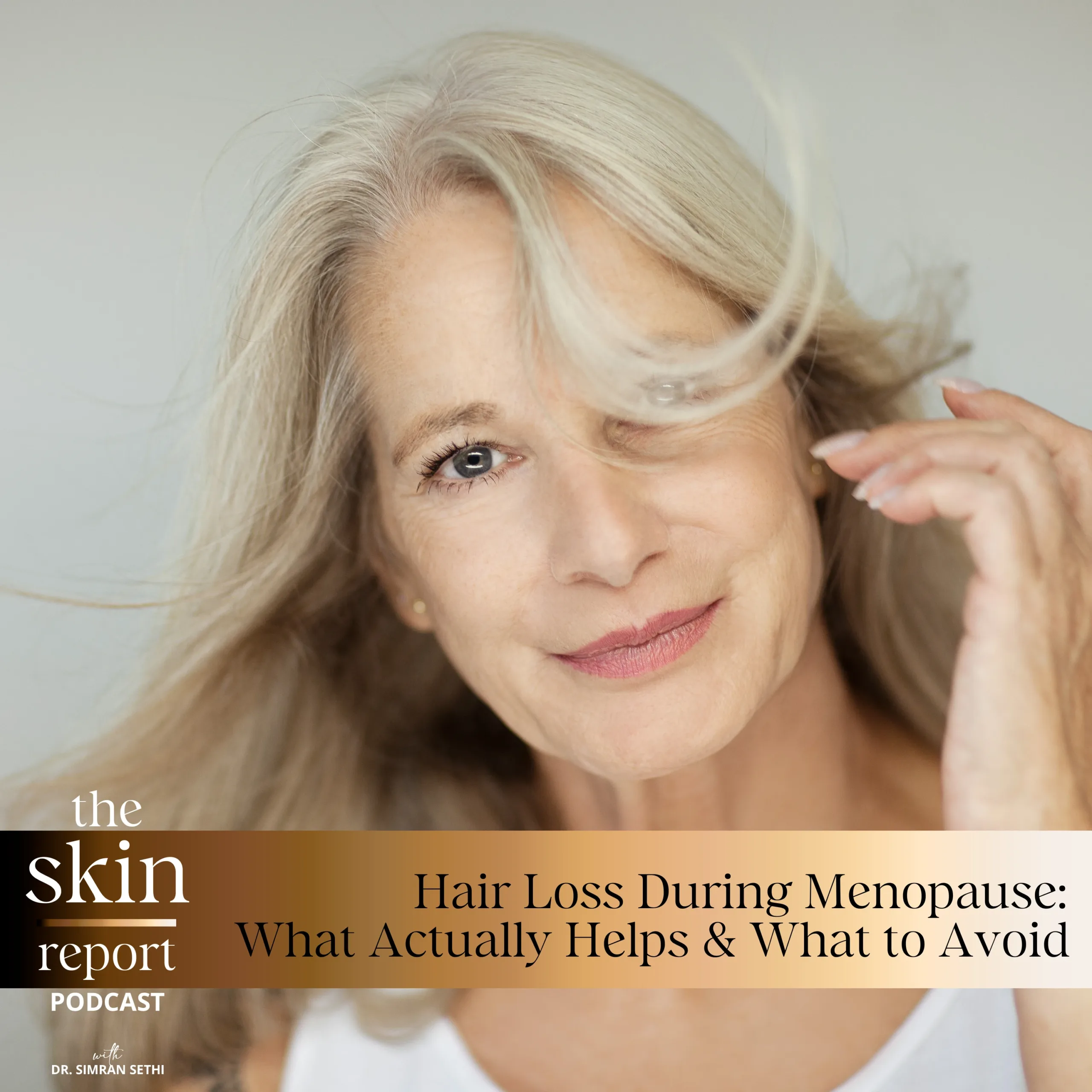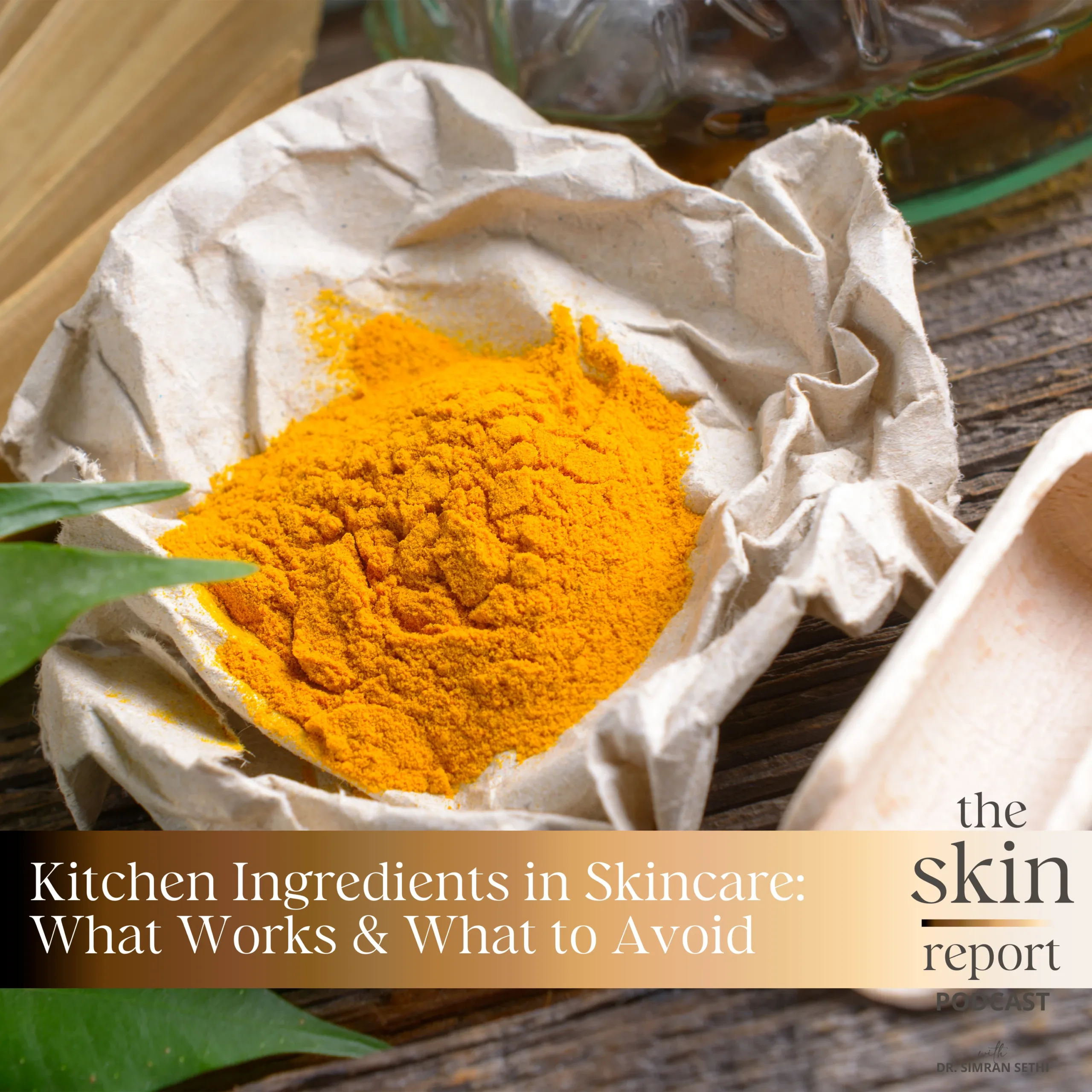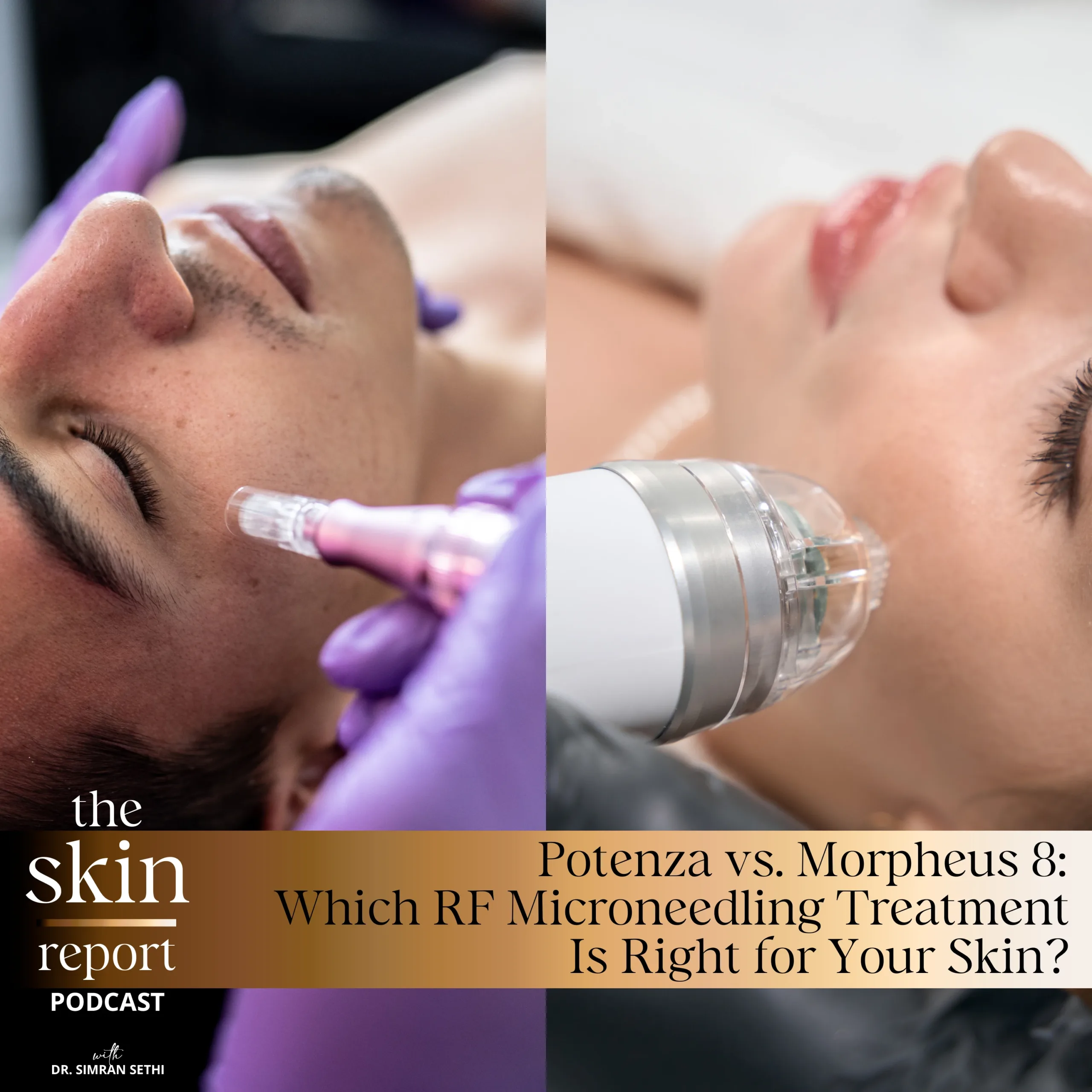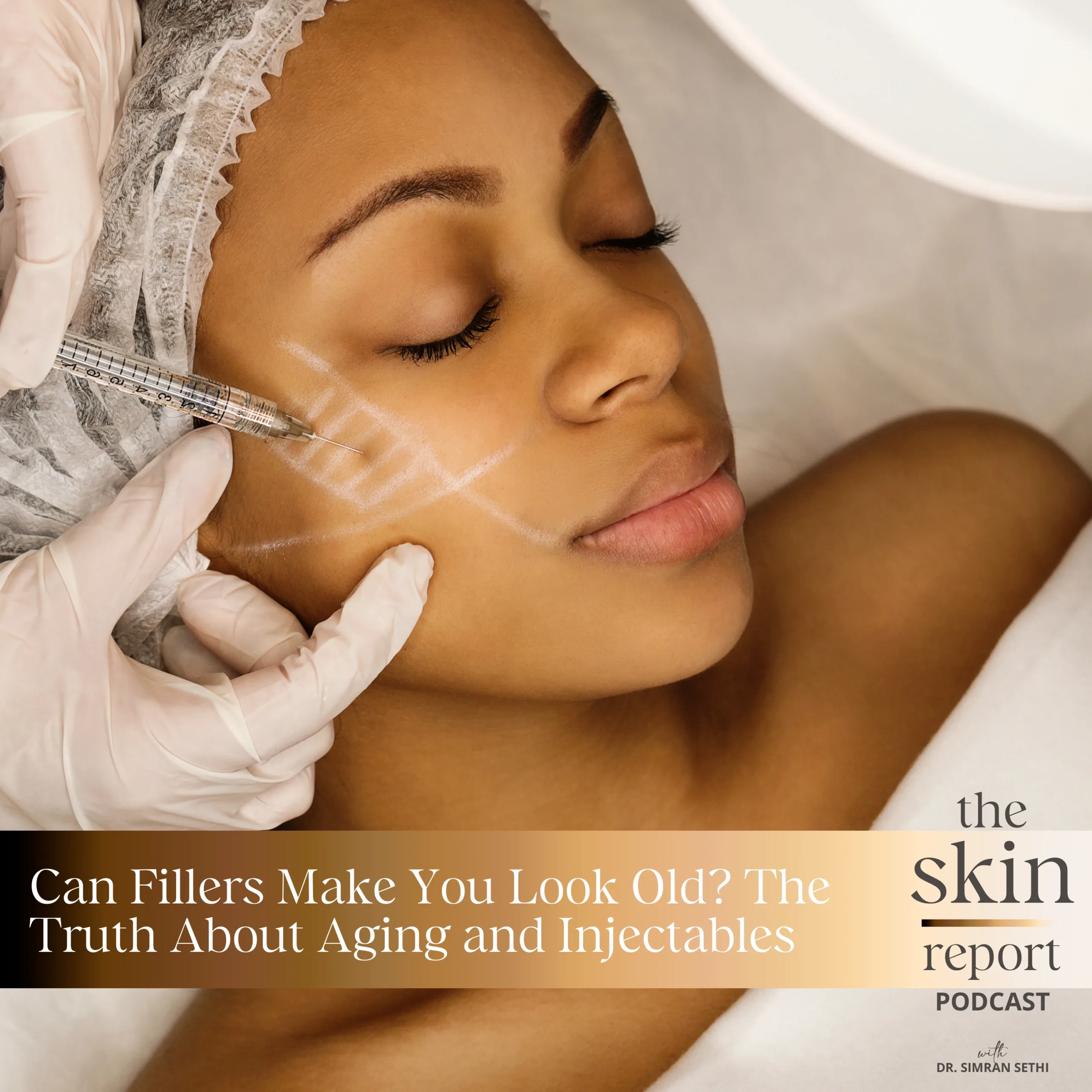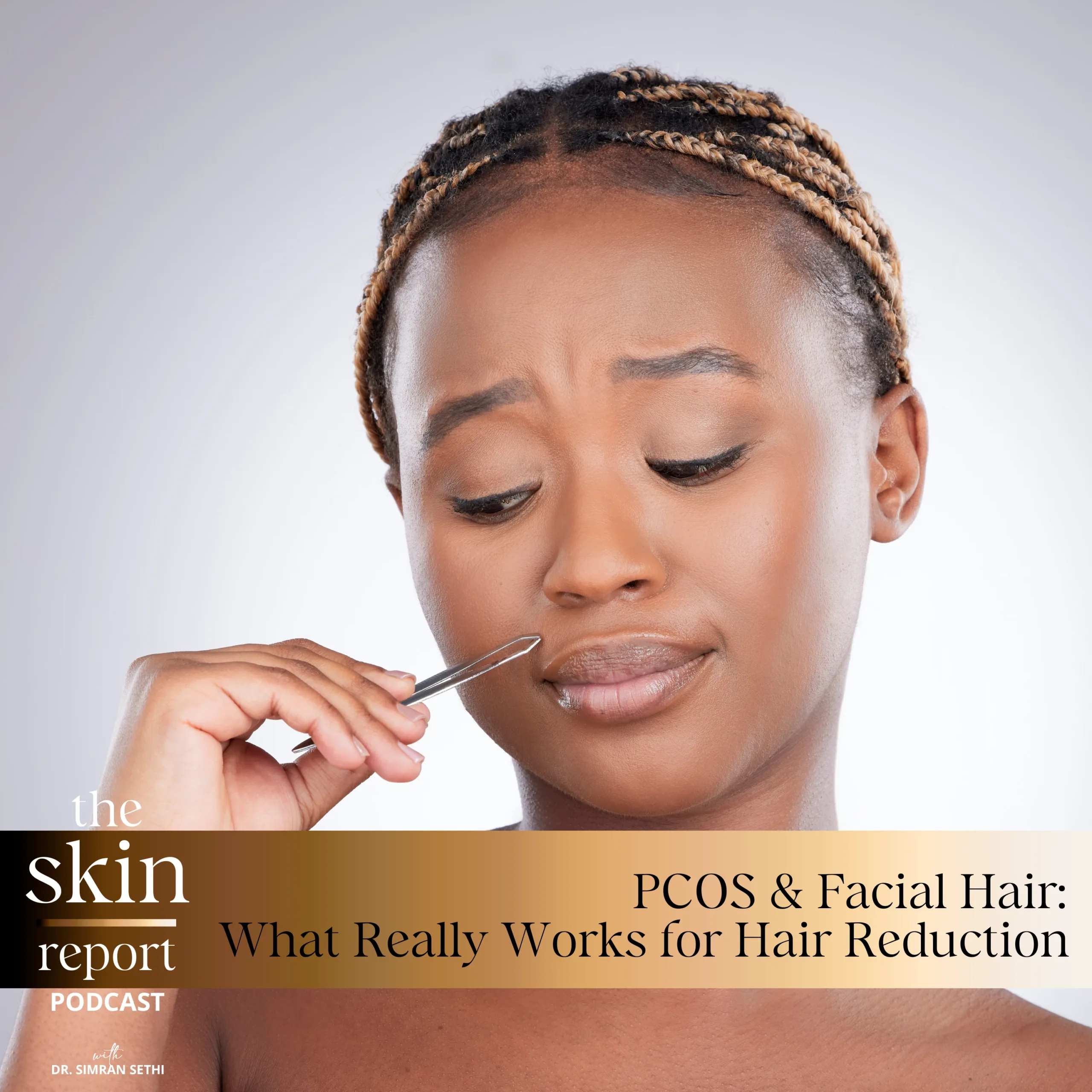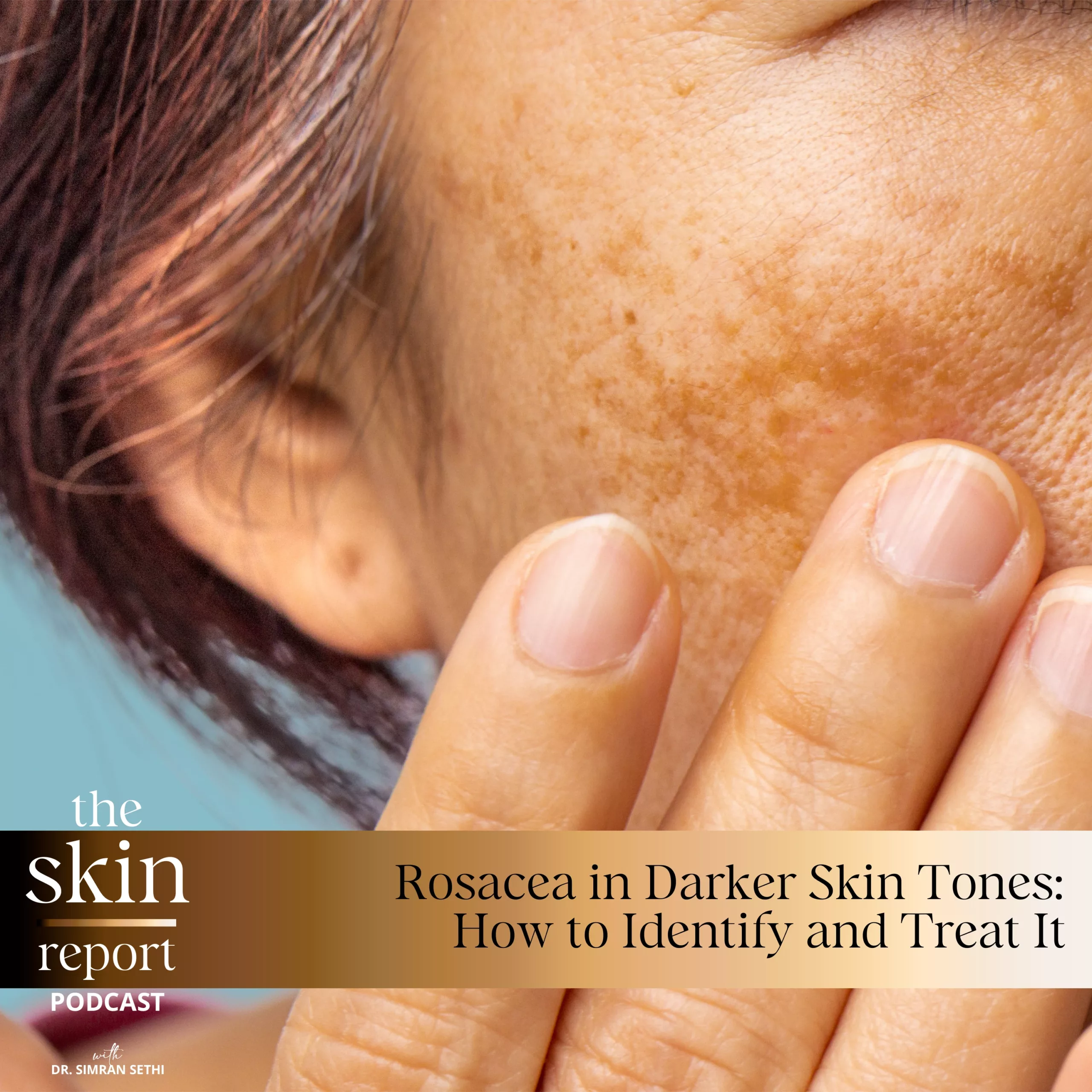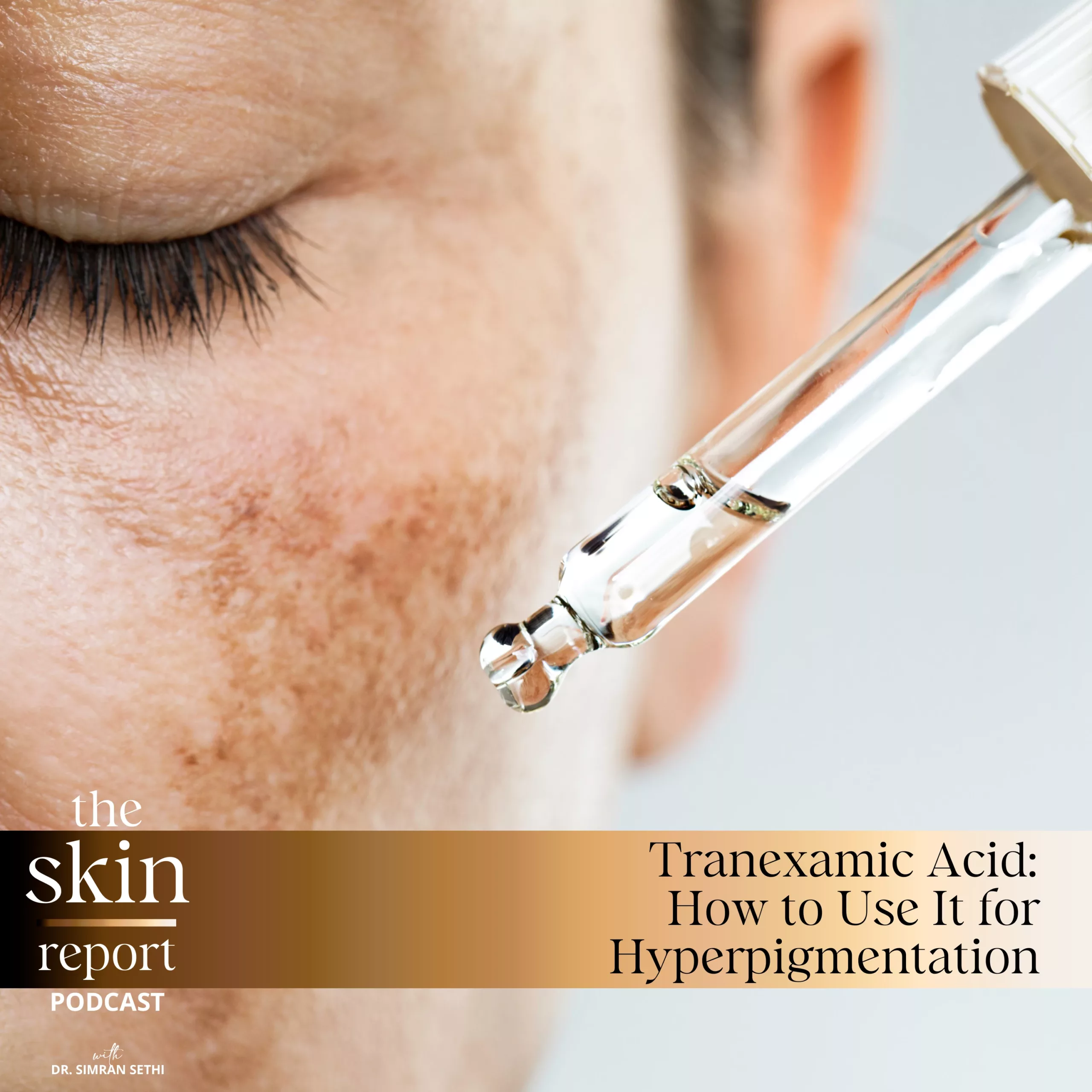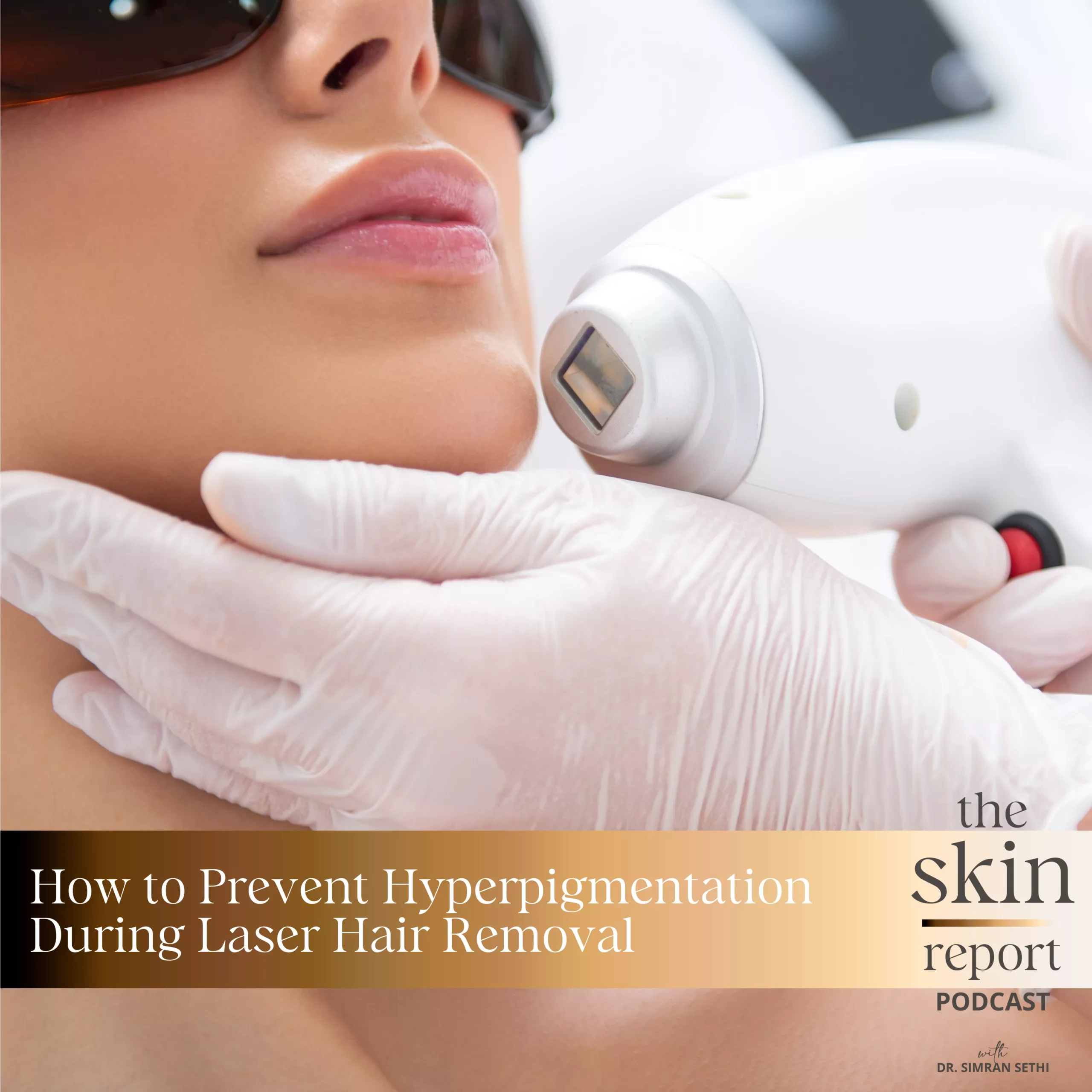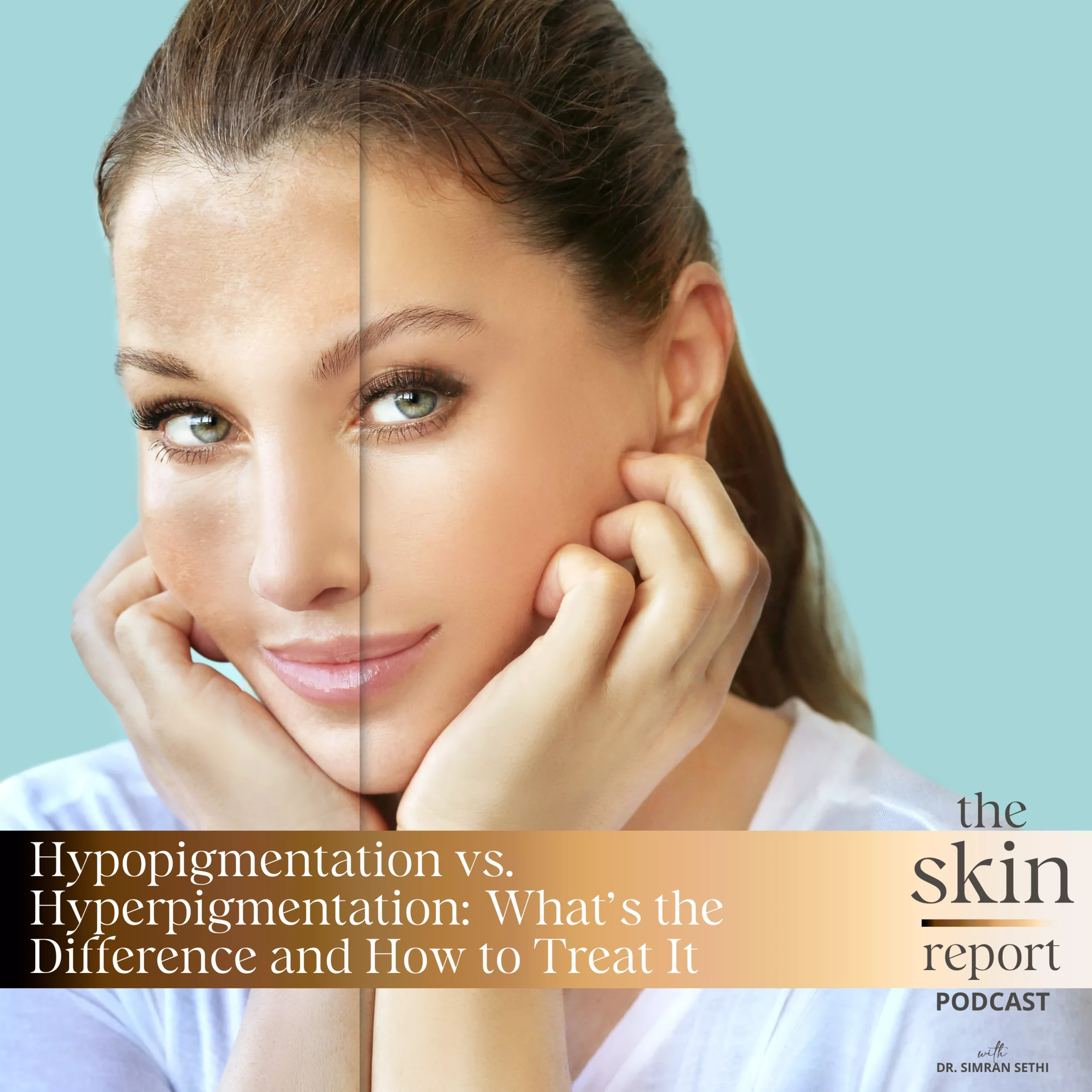Laser Hair Removal Skincare:
What to Use (and Avoid) for Best Results
In this episode of The SKIN Report, Dr. Simran Sethi explains the essential skincare steps you should take—and what to avoid—if you’re getting laser hair removal treatments on your face or body.
Dr. Sethi breaks down how laser hair removal works, why your skincare routine matters, and how to prevent common issues like hyperpigmentation, ingrown hairs, and “strawberry skin.” From sunscreen and exfoliants to moisturizers and scrub routines, this episode is your go-to guide for pairing effective skincare with safe, long-lasting hair removal results.
👉 Whether you’re new to laser hair removal or want to get the most out of your sessions, this episode gives you the science-backed strategies you need to protect your skin and boost your results.
Exclusive Offer for the Skin Report Audience:
Use SKINREPORT20 in the shopping cart to receive 20% discount
LEARN MORE!
The Skin Report Podcast : Subscribe and Download!
Skin By Dr. Sethi – Blog
Skin By Dr. Sethi – Skincare
Skin By Dr. Sethi – Beauty Instagram
Dr. Sethi’s Medical Spa
Dr. Sethi’s Medical Spa – Instagram
Hello, everyone. I’m Dr. Sethi, and welcome to The SKIN Report. We are going to talk about what skincare products you should be using if you’re getting laser hair removal treatments, not only on your face, but also on the body. And most importantly, I’m going to go into what skincare products you should avoid so that you don’t have any adverse effects from your treatments.
So to start, let’s talk about laser hair removal, what does it do and what kind of skincare products you should be using if you’re getting it on your face? Laser hair removal involves using laser energy at a low level to destroy permanently hair follicles that are in their active phase of growth. That’s why when you get laser hair removal, your provider will ask you to not wax or pluck your hair, but to only shave so that there is a little bit of hair left in that follicle because laser machines recognize the follicle they have to destroy by looking for pigment.
Because they’re looking for a pigment, you need to leave just a little bit of hair by shaving, and then the laser will recognize that pigment in the hair as a target, permanently destroy that follicle, which is in its active growth phase, and then you wait a month or a little more to have new follicles wake up and get into their growth phase. Now, because laser treatments or laser machines recognize pigment as their target, this also means that if you have a darker skin tone and have more pigment in your skin, you have to be careful with what kind of laser you’re using for your treatment.
I do go into what kinds of lasers are safe for darker skin tones in other episodes. But just to summarize, if you have a darker skin tone and you’re getting laser hair removal, make sure that it’s with a machine that is an Nd:YAG laser or a diode laser. These are very, very effective for darker skin tones and very safe. Now going back to what kind of skincare you’re using, if you’re getting laser hair removal on the skin on your face, make sure the number one product you’re using is sunscreen.
If you do not already use a sunscreen daily, you definitely should be if you are getting laser hair removal. Laser hair removal can make your skin a little more sensitive to the sun, and sometimes people do notice that their skin may have some bumps or look a little red or just be a little more sensitive in the heat or the sun a few days after getting a laser hair removal session.
This means that you have to have a sunscreen on board every day, rain or shine, if you are getting laser hair removal, not only on the face, but the body. And the sunscreen you’re using should have UVA, UVB, and blue light protection. All sunscreens do not have blue light protection. But if you have a darker skin tone, you need blue light protection because that will keep you from hyperpigmenting.
The next product that you should consider if you’re getting laser hair removal on the face is some sort of chemical exfoliant. If you don’t have a lot of sebum on your skin or have oily skin, you can skip the chemical exfoliant. But if you do have oily skin, you likely do need some extra exfoliation, and this will also help with any reduction of ingrown hair. So a chemical exfoliant like a glycolic acid is a great choice if you’re going through laser hair removal treatments.
But remember, don’t use it a week before your laser hair removal session and a week after. By doing this, you’re not going to make your skin extra sensitive before the laser session or hyperpigment because you have over-processed your skin. Now let’s go into what kind of skincare products and what kind of routine should you have with your skincare if you are getting laser hair removal on the body.
A lot of people who get laser hair removal on their body are having issues with strawberry skin, keratosis pilaris, and are usually depending on that laser hair removal to reduce that. But you actually will not see a reduction in strawberry skin or keratosis pilaris if you don’t have the right skin care on board. You will simply reduce the amount of hair growth, but that doesn’t take away the hyperpigmentation or dark spots from KP or excess growth.
What you do need to incorporate into your skincare routine is a high-strength glycolic acid exfoliant. And this is important because this is going to properly exfoliate those pores. And even though you don’t have any more hair growth, those pores are still clogged with a lot of debris and that’s what’s giving the strawberry skin or that hyperpigmented appearance. So a high-strength glycolic acid that is at least 7% or above is a great choice for skin on the arms and legs and even in the bikini area.
The only problem is glycolic acid at those strengths can really be very acidic and sting the skin and can cause a chemical burn on the skin, which causes then post-inflammatory hyperpigmentation. That’s exactly why when I created my glycolic acid, I added marine peptides and anti-inflammatory calming botanicals to it so that you can get a 10% glycolic acid with anti-inflammatory properties so that you can use it on your body and get that extra deep exfoliation without any kind of inflammation.
The next product you should have on board is a moisturizer. The moisturizer should be rich in ceramides, hyaluronic acid, but should not be very heavy like a Vaseline or Aquaphor. Vaseline and Aquaphor are very occlusive and they tend to create a greasy layer on top of the skin, which will clog pores. And if you have keratosis pilaris or have ingrown hair, you will just worsen the problem even if you are going through laser hair removal treatments.
So a moisturizer for the skin that has ceramides, hyaluronic acid is going to be rich enough to moisturize the skin, but it’s not going to occlude your follicles. The next important thing to remember with skincare, especially on the body when you are getting laser hair removal is the order in which you do things and the frequency. So generally, the skin on the body is a lot tougher than what’s on the face.
So when you are using that glycolic acid exfoliant, you can start doing that few times a week when you first start and then work up to using it at least four to five times a week, if not daily. You would apply your exfoliant right after the shower, and then immediately after that apply your cream or moisturizer. If you can moisturize your body twice a day, that is even more effective. Finally, a common question people have is, what about body scrubs like coffee scrubs? Should I incorporate that in my regimen when I’m doing laser hair removal?
You certainly can, but I will warn you, body scrubs are usually not very good at reducing the appearance of keratosis pilaris or ingrown hair. For conditions like that, you do need deeper exfoliation and you will need a glycolic acid. So you can certainly incorporate a body scrub into your regimen, but make sure you’re not over exfoliating the skin. And a better way to do it is using a glycolic acid three to five times a week and maybe a body scrub twice a week. If you use it more frequently than that along with the glycolic acid, you might over exfoliate.
Your skincare routine during laser hair removal treatments is really important because not only will it optimize your results, reduce the appearance of ingrown hair or keratosis pilaris, which might be the reason why you’re doing laser hair removal, but it will also keep you from over-processing your skin and potentially getting hyperpigmentation. If you have any questions or comments, please remember to put them in the comments below. Otherwise, if you don’t already do so, subscribe, turn on your notification bell so you can always know when we have new episodes released.

